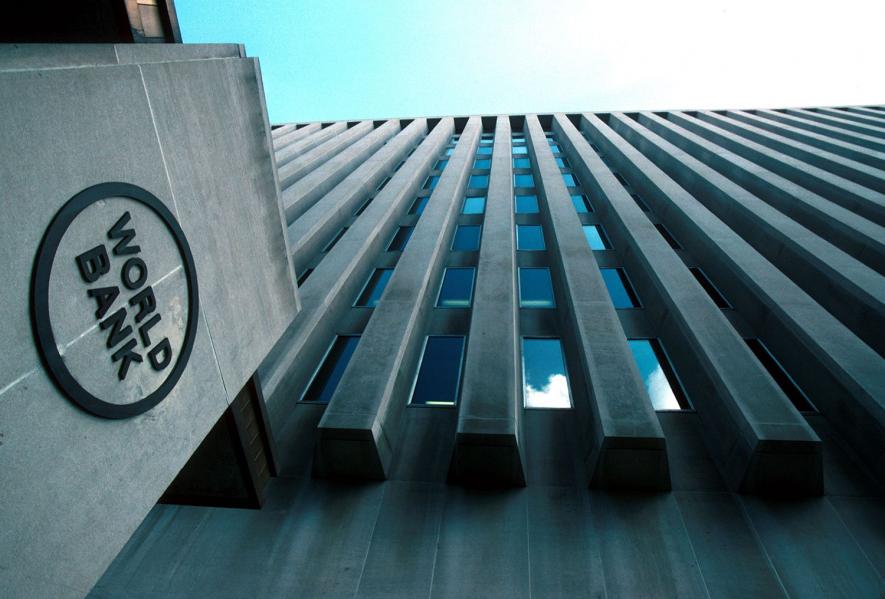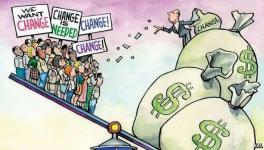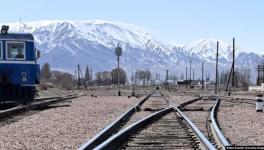Study Says that World Bank’s Aid May Have Fuelled Elite Corruption

A recent study found that payouts by the World Bank to 22 aid-dependent countries between 1990 and 2010 were followed by a corresponding increase in their deposits in foreign tax havens. Although the World Bank itself commissioned the study, senior officials from the institution reportedly blocked the results of the study as it suggested that the bank’s aid has fuelled corruption.
According to the study, in the quarter where a country receives aid equivalent to 1% of its GDP, its deposits in havens increase by 3.4% relative to a country receiving no aid; in contrast, there is no increase in deposits held in non-tax havens. The study estimated a leakage rate of around 7.5% for the average highly-aid-dependent country.
The report titled ‘Elite Capture of Foreign Aid : Evidence from Offshore Bank Accounts’ was authored by Jorgen Juel Andersen of BI Norwegian Business School, Niels Johannesen of the University of Copenhagen and Bob Rijkers of The World Bank. With critics questioning the delay in publishing the results, the financial institution finally released the report on Tuesday.
While acknowledging that other interpretations of the study are also possible, the researchers have affirmed that results are suggestive of aid diversion to private accounts in tax havens.
Datasets considered for the study include quarterly information on aid disbursements from the World Bank and foreign deposits from the Bank for International Settlements (BIS).
The researchers revealed that these aid payments coincide with rising deposits in tax havens such as Switzerland, Luxembourg, Cayman Islands and Singapore – countries where the legal framework emphasise secrecy and asset protection. During the same period however, there has been no increase in non-haven countries such as Germany, France and Sweden.
“We document that aid disbursements to the most aid-dependent countries coincide with significant increases in deposits held in offshore financial centers known for bank secrecy and private wealth management. Aid capture by ruling politicians, bureaucrats and their cronies is con-
sistent with the totality of observed patterns: it can explain why aid does not trigger flows to non-havens, why the capital outflows occur precisely in the same quarter as the aid inflows and why the estimated effects are larger for more corrupt countries,” concluded the study.
The highly aided countries in the sample are Afghanistan, Armenia, Burkina Faso, Burundi, Eritrea, Ethiopia, Ghana, Guinea-Bissau, Guyana, Kyrgyz Republic, Madagascar, Malawi, Mali, Mauritania, Mozambique, Niger, Rwanda, Sao Tome and Principle, Sierra Leone, Tanzania, Uganda and Zambia. While these countries account for around 10% of the aid disbursed by the World Bank, the study reveals that their leakage rates are much lower as compared to less aid-dependent countries.
The 22 countries, sampled between 1990 and 2010, received average annual disbursements from the World Bank equivalent to at least 2% of GDP.
Explaining why these results are consistent with aid capturing by ruling elites, the study said that “diversion to secret accounts, either directly or through kickbacks from private sector cronies, can explain the sharp increase in money held in foreign banking centers specializing in concealment and laundering.”
Furthermore, the research questioned if transfers to havens were caused by confounding shocks correlating with aid disbursements and why similar transfers to other foreign banking centers happen during the period.
A significant limitation in the study, however, was that it did not identify the economic mechanism between aid disbursement and wealth accumulation in offshore accounts as data on who stores wealth in havens in periods of large aid disbursements is not considered.
Get the latest reports & analysis with people's perspective on Protests, movements & deep analytical videos, discussions of the current affairs in your Telegram app. Subscribe to NewsClick's Telegram channel & get Real-Time updates on stories, as they get published on our website.
























